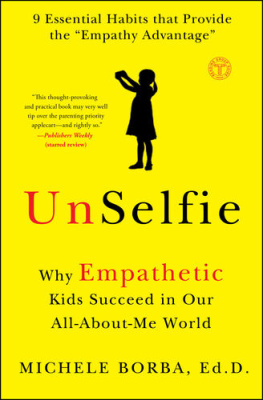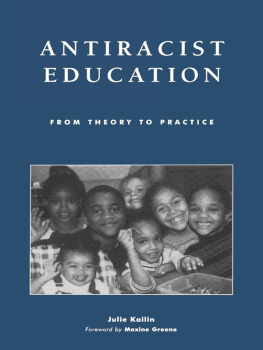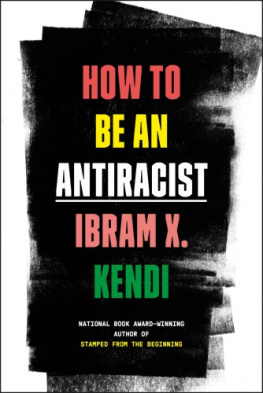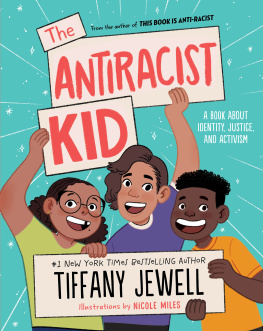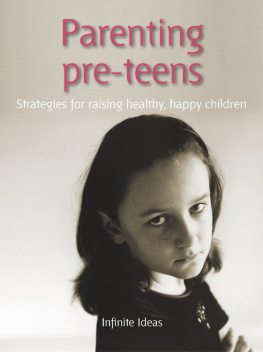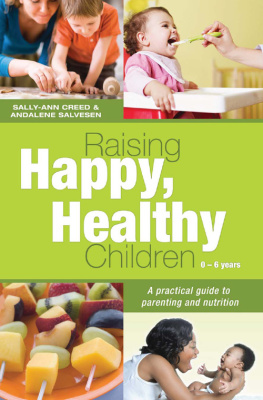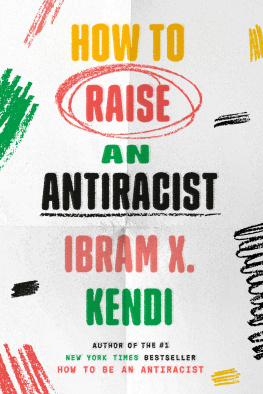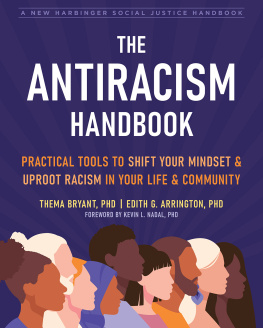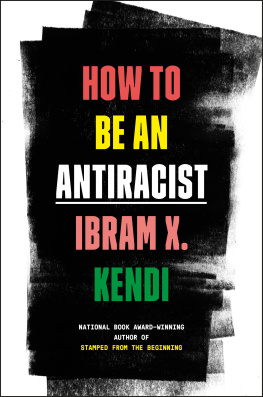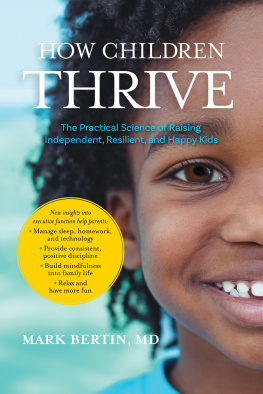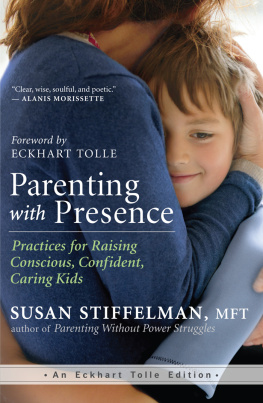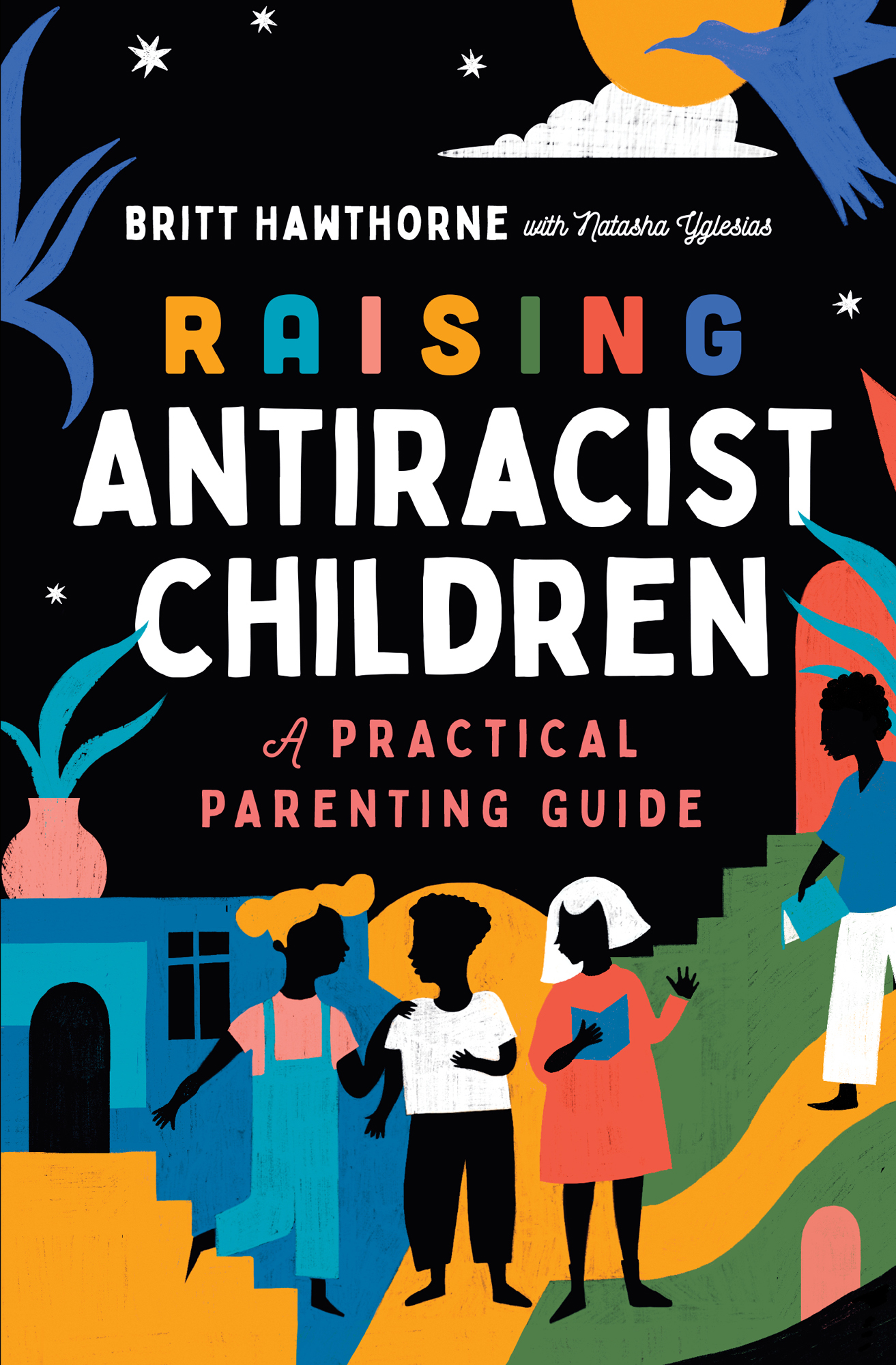Contents
Guide
Britt Hawthorne with Natasha Yglesias
Raising Antiracist Children
A Practical Parenting Guide
We dedicate this book to the antiracists who came before us,
the antiracists who resist alongside us,
and all the antiracists to come.
authors note
W hen writing this book, we relied upon our antiracist child-rearing communities, personal experiences, our memories, and our stories. To preserve the anonymity of certain individuals, weve modified identifying information of anyone who is not a close friend or family member.
We acknowledge that the specifics and dynamics of oppression, community, and language are constantly changing. When deciding on using certain terms in the book, we based our decision on contemporary acceptance of the terms at the time of writing, our education about the topics at hand, and our intuition. We recognize that were always learning, and that some of these terms will change post-publication as conversations evolve and resistance transforms.
Lastly, we want to define what we mean by parent. We recognize that families come in many forms, and we intend for the word parent to be inclusive of the many types of caregivers in addition to societys traditional understanding of parents: grandparents, godparents, aunts, uncles, stepparents, cousins, siblings, and chosen parents or family, to name a few. When we use the words parent or caregiver in this book, we mean to include anyone who has a hand in raising the next generation.
a note to parents
W elcome! By reading this book, youre joining a community working to reimagine how homes will become liberated spaces. We want you to know that its never too early to start creating a home rooted in justice, compassion, and love. So whether youre expecting or a seasoned caregiver, this book is for your family. Together, well practice empowered parenting by modeling, discussing, and taking action. Before you know it, your children will naturally take to anti-biased and antiracist (ABAR) ideals.
Our goal is to take the overwhelming feelings many parents have sharedanxiety about where to start and who to trust, as well as despair, helplessness, and hopelessnessaway. Your goal will be to focus on becoming more comfortable and confident discussing racism, prejudice, and oppression with your family without the guilt and shame involved in these conversations, and to create everyday experiences that promote love and justice. Your awareness and examination will help your family take collective action against everyday and systemic injustices.
Im Britt, and as a nationally recognized anti-bias and antiracist facilitator, I partner with action-orientated educators to create classroom environments that are inclusive and equitable for all learners.
But as a momma, I felt alone and unseen. Parenting books never quite affirmed who I was becoming as a mother and who I wanted my children to become. Sure, I wanted my children to become independent thinkers and doers, and I wanted them to develop a love of reading and playing outside. I wanted them to enjoy themselves. But I also wanted children who welcomed people, set healthy boundaries with their friends, discussed consent with their partners, knew how to rebel against injustice, and above all, children who deeply loved their neighbors. I wanted them to enjoy life and all of its diversity. Many of the parenting books out there focus on individualismin this book, Im looking to focus on collectivism. If Ive learned anything, its that alone we know a little, but together we know a lot. This work doesnt belong to any one person or group, its everyones work to do together.
This book will share some of the ways Ive unknowingly upheld white dominant culture inside my home, but itll also share our favorite toys and materials my family uses to practice accurate language, the critical conversations Im holding with my children, and even how I select books for my home collection. This book is a collection of my experience as a classroom educator, an anti-bias and antiracist teacher-educator, and my life experience of being a momma in the margins. We invite you to share what resonates with you and activates your brain with your loved ones. We invite you to share your journey of learning and unlearning with your loved ones, too.
As you engage with this book, I ask you to commit to and model radical self-love, collective care, and community solidarity. Radical self-love is taking care of yourself, such as drinking water, responding with curiosity, and taking deep breathsespecially when feeling troubled or challenged. We can practice this right now, as you read these words. Go ahead: take three deep breaths.
Taking care of ourselves also means allowing ourselves to grow into who we wish to become. Its easier said than done. Defensiveness, denial, and judgment are easier to choose than reflection, humility, and patience. Allow the truth to take up space. When you find yourself learning from someone, receive the truth as a gift and have a gratitude statement ready: Thank you so much for giving me the gift of truth so I can continue to grow. I appreciate you. You might also respond with Thank you for taking care of me. I have the ability to change my behavior, and I will.
As were taking care of ourselves, we must also take care of each other. Collective care means were responsible for one another. We have a responsibility to hear the truth from others and to share the truth with othersthat includes our children. Silence and complacency wont create the homes were hoping for. If critical conversations seem daunting, youll find a few strategies in Part Five (page 195) that can help set you in the right direction.
Collective care also means creating space for conversations to happen, sharing resources, and making yourself available to support your loved ones and your antiracist community at large.
Lastly, community solidarity : We work to center people of the global majority (Ill go into this term later), to cite our sources, and to work toward justice. As an act of solidarity, Im working to reposition the parenting conversation to include more voices. Together with my cowriter, Tasha, Ive invited fellow parents and caregivers of the global majority to share their antiracist journey with us. We all need more contemporary examples of everyday families taking antiracist action. When your learning leaves these pages, we ask you to cite the writers and sources shared in this book.
One final note: Antiracism belongs to those who choose it. It isnt a destination, its a lifelong path. Action, dedication, and community are required to become an antiracist family. By choosing to create our own paths, well find other families seeking to create brave spaces of their own, a community to hold us accountable and to laugh out loud while doing it.
Were Rooting for You,
Britt and Tasha
introduction
I n the spring of 2017, our four-year-old woke up one morning for school and said, Mommy, Ms. Garcia told me to shut up. I was shocked; I didnt want to believe another teacher, especially a coworker of mine, could speak to a child that way. I asked him to tell me more. He put one of his stuffed animals on his bed, then pretended to be Ms. Garcia. He whispered: Cobe, I need you to shut up. As I rubbed his back and thanked him for reporting it to me, I knew there would need to be radical change.

